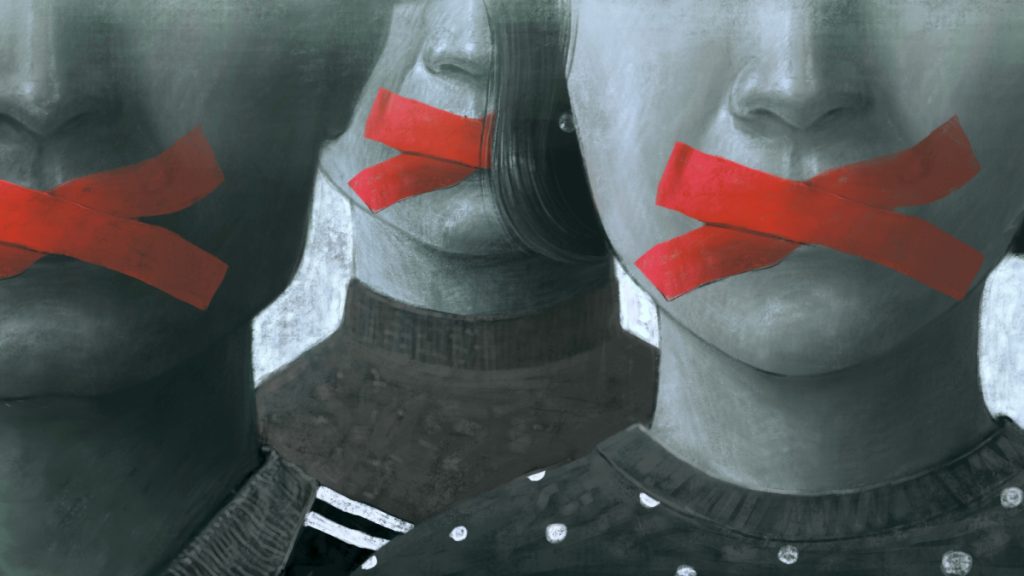
The major source of information during the ongoing Israeli-Palestinian conflict has been networking platforms. Yet, a battle has emerged from the hidden shadows of war. A battle between the social media and human rights to understand freedom.
In one of the biggest wars that we are experiencing these days, social media has become a means of expressing opinions, news, and updates. Will social media remain a means of expression if one side is being muted? In our fast-paced lives, if an event is not documented online, then it’s as if it never happened.
The Social Networking Effect
As for TikTok, it is caught in between, but at the same time, it has recently been deleting pro-Palestinian content. ‘X’ is the platform to be on during wartime, showing that freedom of speech is welcomed. Meta is regulating itself according to what the EU has mandated. They are either unable to change their stance or perhaps do not wish to do so. For example, when you post something related to a certain country, it appears to be posted even when it’s not.
It has been pointed out that Meta is showing bias towards one side in the Israeli-Palestinian conflict. Content generated by Palestinians in Gaza and by pro-Palestinian groups is being suppressed. This isn’t the first instance of such incidents. During the 2021 conflict, Human Rights Watch reported that Instagram, a Facebook-owned platform, deleted posts, including reposts of content from major news outlets. In one instance, an Instagram user posted a commentary urging Palestinians to ‘never concede’ their rights, accompanied by a screenshot. This screenshot contained headlines and photos from three opinion pieces in the New York Times. The content of the post was not altered in any way that could be logically interpreted as encouraging violence or hatred.
Platform Credibility
Meta covered the Russian-Ukrainian war from both perspectives, documenting the conflict from the viewpoints of both the oppressor and the oppressed. They shared online the violent attacks committed by Russia, providing a platform where people could express themselves democratically. This approach contrasts sharply with their handling of the events between Israel and Palestine in 2021 and the ongoing situation, where there seems to be no room for democracy on social media platforms. Accounts have been banned or suspended for sharing their thoughts on pro-Palestinian content.
People have been cautious about sharing content related to Palestine, adapting to the shadow bans imposed by social media platforms. In response, users circulated a memo with strategies to circumvent Meta’s regulations. These strategies include diversifying their galleries with content other than Palestine-related posts and avoiding direct reposts from the platform. Some users demonstrated that their stories about Palestine received zero views, indicating possible suppression. Consequently, they began devising and sharing tips on how to navigate and potentially outsmart the algorithm.
Where Do We Get Our News From?
Information used to be easily filtered by the limited number of media outlets, TV channels, and cable news networks. This control over the dissemination of images and news also enabled them to shape public perception.
Consequently, audiences have turned to social media platforms to avoid the bias evident in traditional media. Instagram, in particular, has become a vital tool for Palestinian journalists, allowing them to capture and share unfiltered moments occurring in Gaza.
In a recent post, the popular Instagram page TRT World, with 1.8 million followers, highlighted the issue of survivor’s guilt experienced by people worldwide. They also featured videos showing how Palestinian citizens have become journalists in their quest to report the realities in Gaza. Instagram users Plestia Alaqad (@byplestia) and Motaz Azaiza (@mostaz_azaiza) have faced multiple restrictions on their accounts for sharing real-life events from Gaza. A teenage Palestinian boy named Abboud, only 16 years old, has gained the attention of millions by adopting a sarcastic tone in his posts about Gaza, a strategy he uses to prevent his account from being banned.
The goal of social media platforms should be impartiality. It’s crucial that all users, regardless of their perspectives, have the freedom to express their thoughts. This includes giving a voice to both oppressors and the oppressed, as challenging as that may seem. These perspectives are not just mere opinions; understanding the full scope of any situation requires viewing it from all angles. If social media platforms fail to facilitate this comprehensive view, distinguishing between what is real and what is fabricated becomes increasingly difficult for the audience.
After reading this…
I will give you the space to continue with your life like you would, unless there are new facts that you take into consideration.
History is repeating itself in events and social media patterns.
Inside Telecom provides you with an extensive list of content covering all aspects of the tech industry. Keep an eye on our Community section to stay informed and up-to-date with our daily articles.